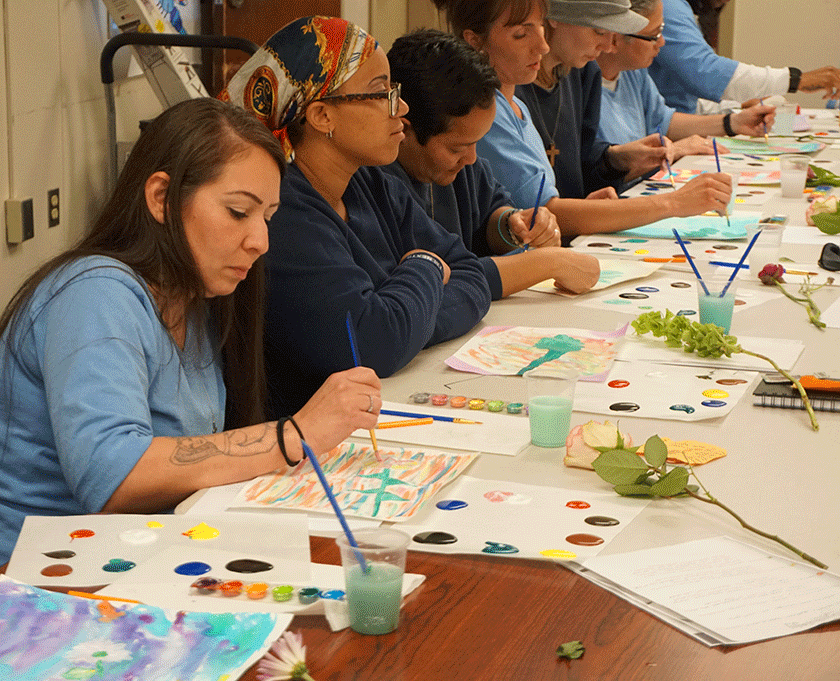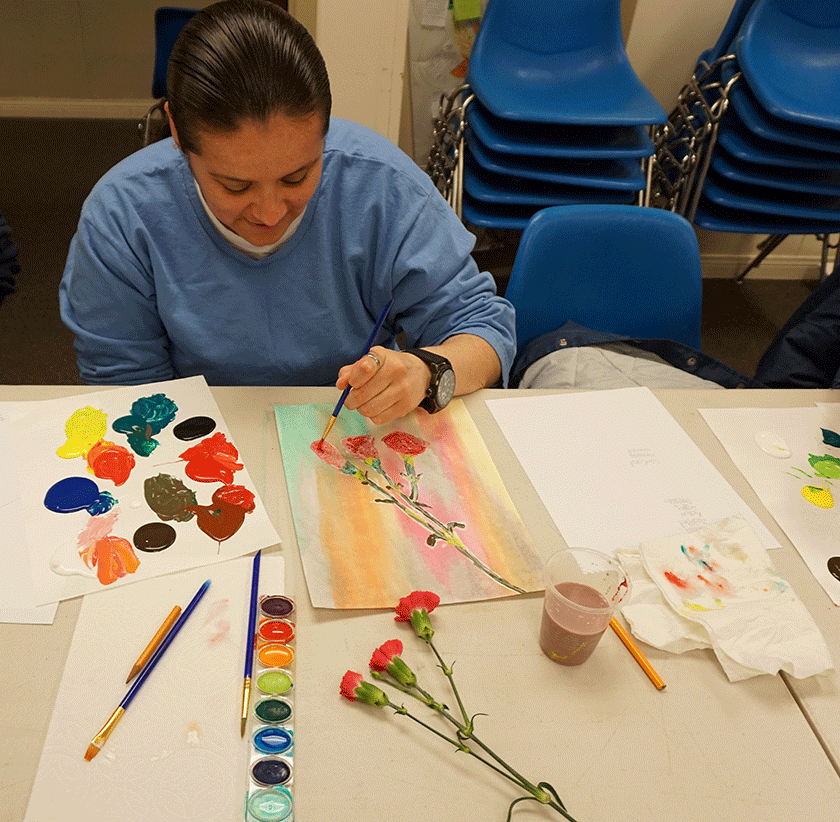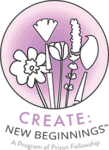When Los Angeles artist Stephanie Segel steps behind prison bars for a project, all paint brushes and art pens are labeled; each bottle of paint is accounted for. When she leaves, all supplies return with her. It's standard prison safety protocol: What goes in must go back out.
Convicted women carry a lot into prison, too. Guilt. Shame. Destructive habits. Wounds of abuse. But what if people didn't have to leave prison with all the emotional and spiritual baggage with which they entered? What if these could be let go for good?
That's part of the vision for Create: New Beginnings, the restorative in-prison art workshop Stephanie co-leads with fellow artist Martha Ackerman. Create: New Beginnings has visited Rikers Island Jail, Minnesota Correctional Facility-Shakopee, California Institute for Women (CIW), and other correctional facilities.
Located in Corona, Calif., CIW is also home to a Prison Fellowship Academy® site, where participants address criminal thinking and behavior, addiction, victim impact, and more. Forty women from CIW's Academy cohort welcomed Martha and Stephanie for a lesson on the art of forgiveness.
What if people didn't have to leave prison with all emotional and spiritual baggage they had toted in? What if these could be let go for good?

A CHANCE TO BE HEARD
In prison, vulnerability isn't intuitive. But in a class like Create: New Beginnings, it's key. The art lesson kicked off with a group discussion, asking the incarcerated women, what is forgiveness? Why is it important, and how is it difficult?
Although it was only their second meeting as a group, Stephanie noted that the women were eager to participate. "When we teach … and the ladies don't know each other, they're not really willing to open up yet," she explains. "But it was pretty amazing … they've only been in a group with each other one other time. And they still opened up like they did."
After the discussion came the hands-on activity. For such a difficult subject, participants received simple instructions: Write a letter. Direct it to someone you harbor negative feelings toward. Share openly and don't hold back. The letter will be destroyed—never delivered—so, no pressure.
Martha, Stephanie, and their team of volunteers joined in to write their own.
In prison, vulnerability isn't intuitive. In a class like Create: New Beginnings, it's key.
BLANK CANVAS
Soon it was time to share. Pens went down, and hands went up.
"Oftentimes, they don't want to share that letter," Martha noted. "But this time, there were a couple of people … literally their arms were flying up in the air."
One woman stood to share a letter she'd written her mom: "I spent my entire life trying to gain her approval, trying to be on the honor roll and be a good girl, while the whole time she was neglecting me and not showing up for school things. She introduced me to drugs when I was 14, and my downside began from there. So, my letter is to her and going through that healing process."

Another woman wrote to her husband, asking for his forgiveness. In her addiction, she'd abandoned him and their children. Still another wrote begging her entire family to forgive her for her unbridled anger and for choosing over her family the friends she'd followed into addiction.
Once everyone who wanted to share had done so, the incarcerated women tore their letters into pieces—a symbolic "letting go" of bitter feelings. Each woman pasted the scraps of her letter to a clean sheet of paper, creating a canvas of new and old. Paintbrushes in hand, the artists began blending colors into beauty and healing.
JOURNEY TO HEALING
 Forgiveness is an ongoing practice, not a one-time act. But healing can often start with the simple act of a paintbrush stroke. In the Create: New Beginnings workshop, even many of the quietest students felt comfortable to share their stories once they had a chance to turn it into something.
Forgiveness is an ongoing practice, not a one-time act. But healing can often start with the simple act of a paintbrush stroke. In the Create: New Beginnings workshop, even many of the quietest students felt comfortable to share their stories once they had a chance to turn it into something.
"Sometimes they don't even know what they've been feeling until we ask them to express it somehow," said Stephanie.
At the end of the class, each participant keeps her painting—a reminder of her own messy but beautiful journey.
"It has been a very powerful workshop," said Martha. "In the end, we had a lot of people expressing to us extreme gratitude … just really, really thanking us for taking them through that process."
The class left its mark on the volunteers, too, Martha shared: "They all said to me, 'I'm so glad we are doing forgiveness, because I really needed this today.'"
OTHER STORIES YOU MIGHT LIKE
DID YOU ENJOY THIS ARTICLE?
Make sure you don't miss out on any of our helpful articles and incredible transformation stories! Sign up to receive our weekly newsletter, and you'll get great content delivered directly to your inbox.
Your privacy is safe with us. We will never sell, trade, or share your personal information.
SUPPORT THE WORK OF PRISON FELLOWSHIP